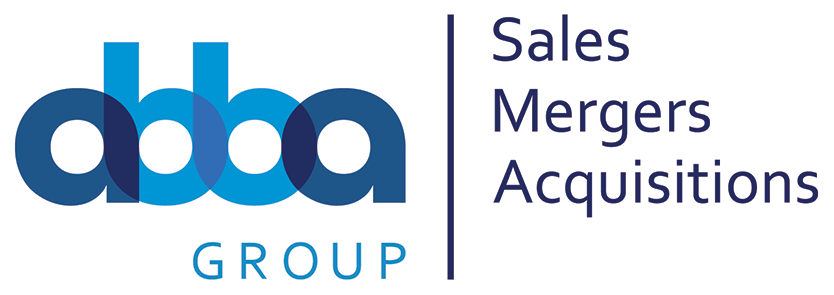10 Essential Steps to Selling a Business in Australia
One of the biggest decisions a business owner will make is the decision to sell their business. Often, simply transferring business ownership is not the sole objective; sellers are seeking to ensure that the culture, values, and years of hard work put into the business are acknowledged and respected. Whether you want to sell a business in Australia to retire or try something new, it’s important to understand the entire selling process. Every stage, from evaluating the market to completing legal paperwork, requires planning, accuracy, and strategy. The ten steps to ensure a successful business sale in Australia are outlined in this article.
Selling a Business in Australia: 10 Steps to Consider
Determine Your Goals and Timeline
Before listing your business for sale, outline your goals. Ask yourself, why do you want to sell?: Is it for financial reasons, lifestyle adjustments, or to pursue another opportunity? Once you have clarity, create a realistic timeline that you can work towards. Selling a business is not something that can happen overnight. It may take anywhere from a few months to a year. and having a timeline will guide other decisions you will need to make including valuation, advertising, and negotiations.
Get a Professional Business Valuation
Understanding the actual price of your business is crucial in the sales process. An expert business valuation offers an accurate estimate of what your business is worth and should consider factors including cash flow, assets, goodwill, and market conditions. In Australia, a certified business broker or an authorized accountant familiar with your industry can assists you in establishing a fair and competitive sales price. Remember, over pricing can deter potential buyers while under valuing your business can leave you in a difficult financial position.
Prepare Financial Records and Documentation
Buyers in Australia expect financial transparency. Prepare all documentation, including earnings and loss statements, tax returns, balance sheets, and coins float statements, for the next 2-3 years. Accurate and up-to-date financial records show that your business is financially healthy and well positioned for a straight-forward sale and seamless transition for the buyer.
Boost Your Business’s Appeal
Just as you would spruce up a residential property before selling, ensuring that your business is operating efficiently will attract more buyers. Address any operational inefficiencies if they exist, enhance customer service processes, and ensure regulatory compliance across the business. Highlight your businesses strong points and what sets your business apart from competitors.
Identify the Right Type of Buyer
Not every buyer will be right for your business. To sell your business successfully to the right buyer you should try to understand what their objectives are. Is the buyer looking to step in and maintain current operations? Does the buyer want to take the business in another direction and diversify their portfolio? This knowledge can assist you in tailoring your marketing techniques and can help to ensure the business transitions smoothly to a new owner.
Work with Experienced Advisors
Selling a business involves many legal, financial, and operational complexities. Working with experienced experts, including business brokers, accountants, and legal advisors who understand the Australian marketplace will help you navigate all these complexities correctly. A business broker can connect you with qualified buyers, while an accountant can ensure your financials are in order. A solicitor will draft and review contracts and provide sound legal advice.
Market Your Business Strategically
Effective marketing is critical to attracting the right potential buyers. Confidentiality is key so use techniques that conceal the identity of your business. In Australia, business brokers frequently use databases, industry networks, and online platforms to advertise businesses that are on the market. Advertising should highlight your business’s strengths, as well as growth opportunities that will be appealing to purchasers.
Qualify Potential Buyers
Not everyone who enquires about your business will be a suitable buyer. Qualifying buyers ensures you focus on those with the finances to complete the transaction and the right criteria to own and run the business. Review a buyer’s finances and their business experience to ensure they are able to manage and grow the business. This step is important to avoid wasting time with unsuitable buyers.
Negotiate and Draft the Sales Agreement
Once you find the right buyer, negotiations will start. Be prepared to discuss terms such as the sale price and transition period. It is essential to have your solicitor evaluate all contracts which should clearly outline asset transfers, intellectual property rights, and any warranties in order to avoid any disputes later.
Finalise the Sale and Transition
After all negotiations are completed and is the contract is signed, it’s time to finalise the sale. This includes transferring ownership, property, and any licenses or permits required under Australian regulations.
Ensure any training that has been agreed upon is delivered. A smooth and seamless transition will limit disruption to the day-to-day operation of the business and build client loyalty.
Final Thoughts
Selling a business in Australia can be a complicated process. With careful planning and expert guidance it can be a positive and successful experience, both for sellers and buyers . The ten steps outlined in this articles can maximize your sale price and ensure a smooth transition. Remember, every business is unique and different, and adapting these steps to suit will result in success.
Selling a business doesn’t have to be complicated. With ABBA Group, you’ll get personalised service, expert guidance, and the financial outcomes you want. Contact the ABBA Group today to get started!

